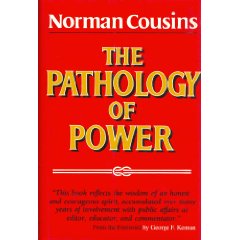Several recurring themes of lasting value emerged from my reading of this book:
1) The UN is dangerously devoid of intelligence qua decision-support. The culture of the UN leadership, the UN bureaucracy, and the UN delegates is one that places a higher priority on the semblance–the mockery–of lip service to open sources and legal methods, while sacrificing the lives of UN forces in the field. One cannot read this book, and its superb documentation of how UN Force Commander after UN Force Commander pleaded for intelligence support, only to be told no by the staff in New York, without becoming very angry. This book makes it perfectly clear that the UN leadership failed the Croats, the Serbs, and the international peacekeepers, in every possible way. Toward the end of the book the author also focuses on the UN as a source for the belligerents, i.e. UN incapacity for operational security and secure communications in fact makes it a primary source for belligerents seeking to kill one another.
2) The West failed in Bosnia in part because it became over-reliant on technical intelligence (which it could not process or analyze with sufficient speed and reliability), and did not have adequate numbers of competent clandestine Human Intelligence (HUMINT) or even ground-truth observers in the region. A contributing source of failure was the evidently deliberate decision on the part of the Clinton White House to downplay the conflict and to withhold such intelligence warning as they did have from the UN, in the misplaced belief that sharing such information would interfere with the peace process. Tens of thousands died because of Clinton White House irresponsibility.
3) Intelligence “liaison” or structured sharing across national boundaries, was an ungodly mess made worse by the inherent biases and rose-colored glasses worn by the Americans and the British on one side, and the French and the Germans on the other. “Wishful thinking” by policy makers interfered with proper assessments of the relative condition and intentions of the various belligerents.
4) The CIA clandestine endeavor was split, with one Station operating out of Sarajevo and another out of Zagreb, and no overall coordination or integration of sources and reports.
5) Civil Affairs (CA) as a military occupational specialty is blown forever by CIA Directorate of Operations (DO) abuses, most without the permission of the U.S. European theater commander. CIA/DO managers should be disciplined for this breach of internal US government protocols.
6) The Dutch were not ready to field a major operational or tactical intelligence support architecture, and in-fighting among various elements prevented the various analysts from making the most of what little they could glean from varied sources. The same was actually true of all Western intelligence communities–all had other priorities and too few resources [although language deficiencies are not emphasized by the author, one presumed a grotesque lack of required competencies across the Croat and Serb dialects as well as Yugoslavian, Turkish, and Arabic]. In the view of a senior officer whose quotations close Chapter 3, heads should be rolling for dereliction of duty–although the subject refers only to the Dutch, the reviewer would add US and British heads as well.
7) The book excels–is remarkable and perhaps unique–for its discussion of the secret arms supplies–not only the routes, the providers, the landing zone delivery means–but the active violation by the US of the embargo, and the active role of US Special Forces in violating the embargo without a covert action “finding”, and hence also in violation of US law. Other nations were equally at fault. It is clear from the book that the UN needs not only operational and tactical intelligence for the specific area of operations, but an extended intelligence and operational capability sufficient to *interdict* incoming arms to the belligerents. This book may well be the single best reference on this topic.
8) The sections of the book on signals and imagery intelligence are a work of art, combining historical scholarship with original research and a very fine tutorial aspect. The listing of the 11 disadvantages of SIGINT (pages 224-228) is the finest I have ever seen. The bottom line in both instances is: too much collection, too little processing and analysis. The author uses a remarkable quote from a former Director of the National Security Agency to make this point: good news is that we can exploit a million messages a day; bad news is that we don't know which million out of the billions we capture to do… Also interesting is the detailed accounting of belligerent party competencies in SIGINT and IMINT, to include the use of Unmanned Aerial Vehicles and advanced methods.
9) The book ends with two notes that I choose to emphasize, although the author makes many valuable observations in his conclusions that I will not repeat here: first, support to UN operations was the *fifth* priority for Western intelligence, coming after force protection, after ground truth observation, after support for air targeting, and after support for NATO ground troop planning; and second, Doctors Without Borders, a non-governmental organization, was the *only* entity to get true validated warning of the Srebrenica genocide.
The index is terrible-names only. Properly indexing the book for references to all intelligence sources and methods as well as events and practices, would make it 2X to 3X more valuable as a basic reference.
This book is highly recommended and a “must have” for every national security and international affairs library, and for every professional interested in peacekeeping intelligence.










